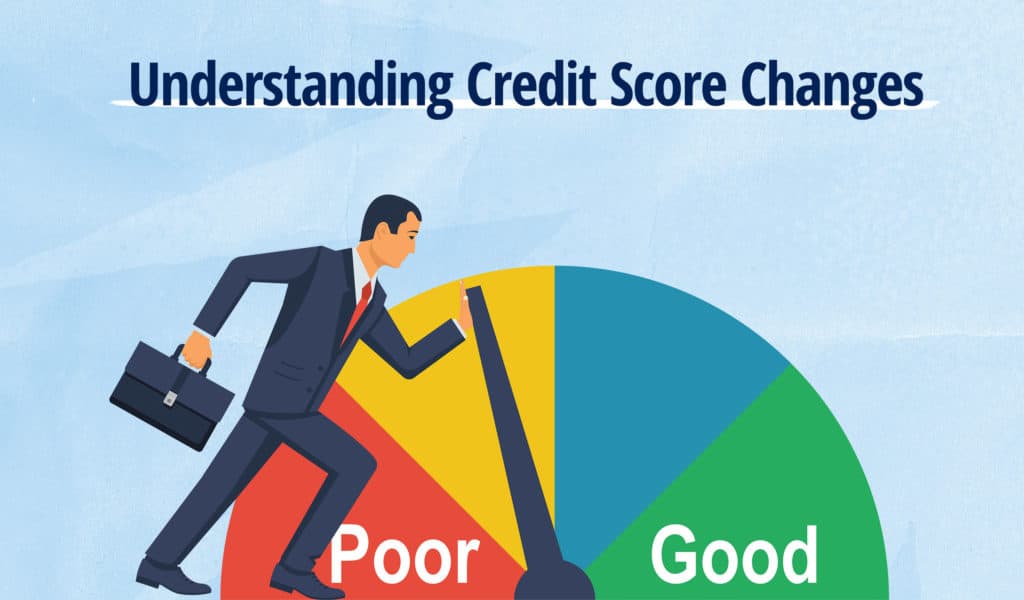If you’re in the process of buying a home, leasing a car, or even trying to rent a one-bedroom apartment, your lender or landlord may inform you that your credit score will be checked as part of the approval process. You may keep up with every credit score change, or you might not have a clue how to check your credit score yourself.
Having a healthy credit score is a great way to show potential lenders, mortgage brokers, and individuals considering renting you an apartment that your finances are in great shape and that you are able to pay back your debt in a responsible, timely manner. Here is a breakdown of what credit scores mean, what they are used for, and how often you can expect your score to change.
What Does My Credit Score Mean and What Is it Used For?
A credit score is a summation of how you use money and pay debts. You are given a score (usually around 300-850) that determines how healthy your finances are. Your credit score is calculated using the following categories.
- The age of your accounts
- The number of open accounts you have
- How much debt you have
- Whether you’ve missed payments in the past
A “good” credit score is a bit of an arbitrary judgment, but as a general rule, anything over 700 is considered adequate. Scores on the higher side, such as those above 750 and into the 800s, indicate that you have taken very good care of your debts and that you have opened enough accounts for lenders to be able to get a good picture of your credit history. Scores under 600 are below average, and these may prevent you from getting approval from lenders. Whether a credit score is a large or small part of a lender’s assessment of your finances is up to the lender and the approval process they have already set in place.
As you can see, your credit score is a good way to take the temperature of your financial history. It doesn’t tell the whole story, of course, but if you’re applying for a loan, it can give a lender a good idea of whether you’ve paid back (or are in the process of paying back) any previous loans, whether you’ve taken on a lot of debt, and even whether you’ve tried to apply for loans in the past. If you have a low score, you’ve probably been flagged in a few of these categories.
Hard vs. Soft Credit Inquiries
If you’ve been notified of a “hard” or “soft” inquiry on your credit score, you may wonder what this means — and what exactly the difference is between the types of inquiries. When a lender checks your credit in the approval process, he or she will run an inquiry on your credit report. This is a “hard” inquiry; it will give the lender information about your financial history and credit, and it will knock a few points off your credit score as a penalty for having been run. The more frequently you apply for loans, mortgages, or leases, the more lenders will check your score, and the more your score will decline as a result. There’s a reason for this: Lenders want to see that you are not applying for a lot of loans or extra financial help. If you are, this indicates to them that you are more of a risk.
A soft credit inquiry, on the other hand, will not decrease your score. This type of inquiry gives lenders valuable information, and it’s beneficial when you’re being pre-approved for a loan, for example. If you check your own credit score, you’re essentially running a soft inquiry on your own credit! It doesn’t hurt your credit at all to monitor it by yourself.
How Often Does My Score Update?
Now that you understand the importance of your credit score as well as what raises and lowers it, you may feel the urge to constantly check your score. It won’t decrease your score to do this, but you may not be pleased with the results if you see that number refusing to budge for a few weeks. Creditors report your accounts’ data every 30-45 days, but depending on your accounts, these creditors may aggregate data at different times. This results in a score that changes a few times a month or even several times a week.
In general, you should check your credit score once or twice a month. You can monitor it more closely if you’re getting ready to make a big purchase for which a lender will need to check your credit, or if you’re planning to apply for a mortgage pre-approval or lease a new apartment.If you have any questions about your credit score, what it is used for, or how you can improve it, contact us at Coast Tradelines today. We’re happy to help!




